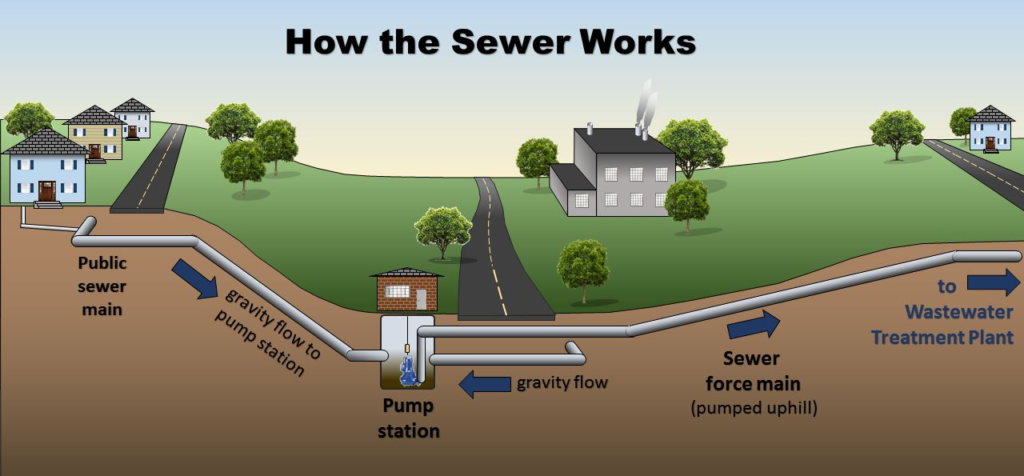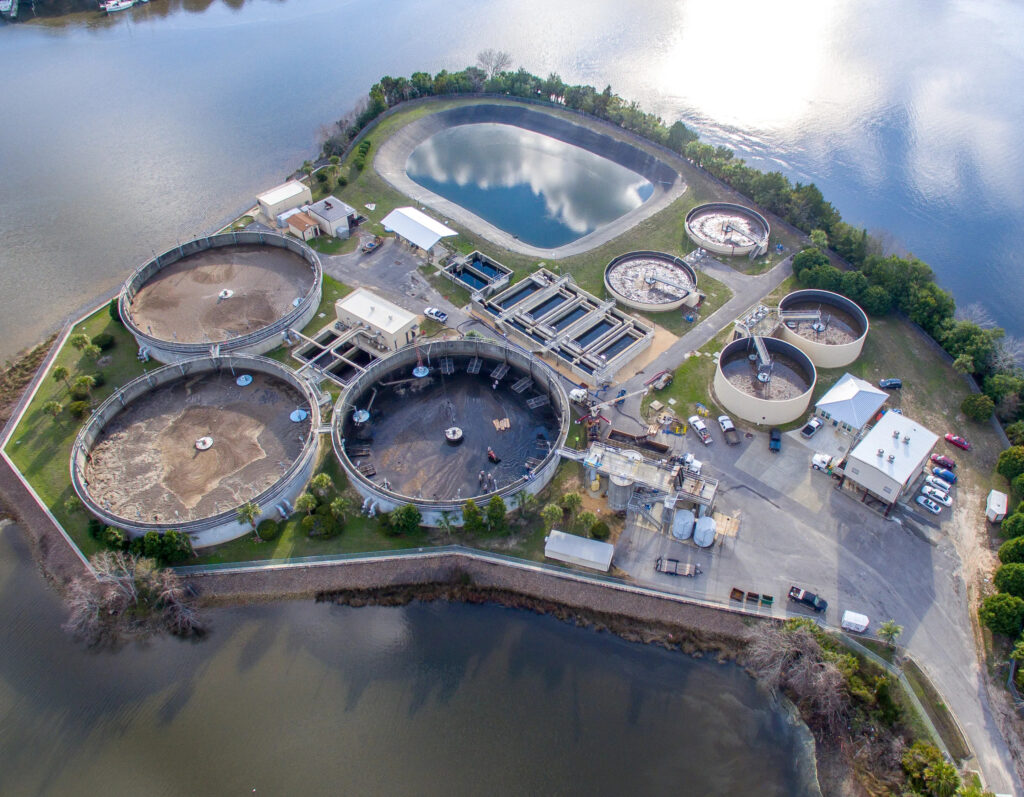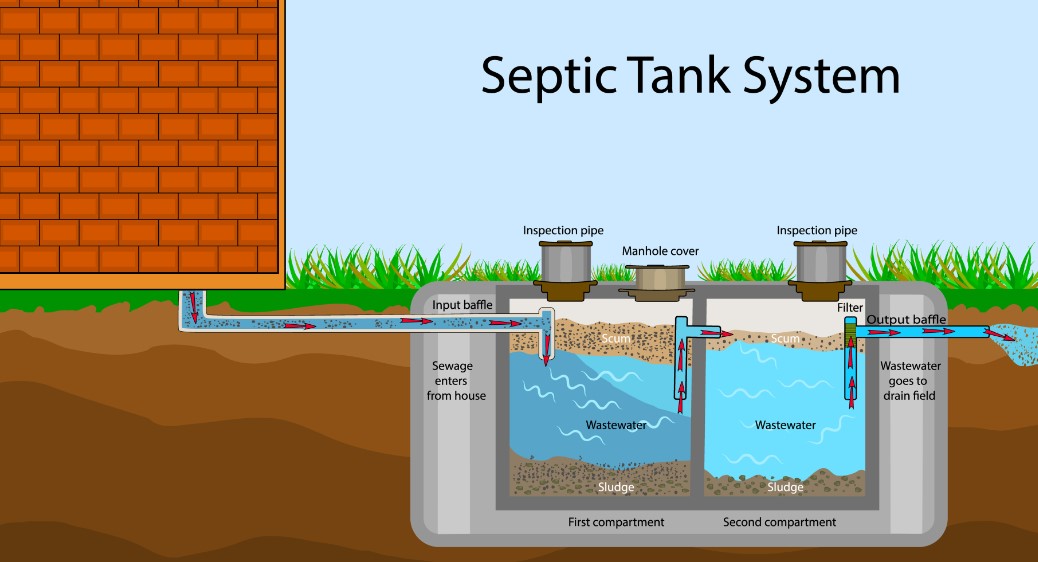Unleashing the Power of Septic Tank Treatment: A Comprehensive Guide to a Healthy System
When it comes to home maintenance, few things are as crucial and yet often overlooked as the septic tank. As an essential part of your property’s plumbing system, the septic tank plays a vital role in waste management. However, without proper care and regular maintenance, septic tanks can become a ticking time bomb, ready to explode with costly repairs and inconveniences.
In this comprehensive guide, we will delve into the world of septic tank treatment and explore effective strategies to maintain a healthy and trouble-free system. From understanding the fundamentals to implementing best practices, we will equip you with the knowledge and tools necessary to prevent backups, foul odors, and expensive repairs.
Table of Contents
- Septic Tank Treatment: Unleashing the Power of Prevention
- Regular Pumping: The Backbone of Septic Tank Treatment
- Proper Disposal: Mind What Goes Down the Drain
- Water Conservation: Less is more
- Regular Inspections: Catching Problems Early
- Septic Tank Pumping Schedule: Tailoring to Your Needs
- Environmental-Friendly Septic Tank Treatment Options
- Septic Tank Additives: Proceed with Caution
- Septic Tank Backups: Troubleshooting Tips
- Common Mistakes to Avoid with Septic Tank Treatment
- Septic Tank Treatment FAQs
- How often should I pump my septic tank?
- Can I use septic tank additives to enhance treatment?
- What should I do if I experience a septic tank backup?
- Are there any environmentally friendly septic tank treatment options?
- Can heavy rainfall affect my septic system?
- Is it safe to use chemical cleaners with a septic tank?
So, let’s roll up our sleeves and discover the secrets to optimal septic tank performance!
Septic Tank Treatment: Unleashing the Power of Prevention
The key to a healthy septic tank system lies in prevention. By implementing proactive measures and regular maintenance, you can significantly extend the lifespan of your septic tank while minimizing the chances of system failure. Let’s explore some essential steps to keep your septic tank running smoothly.

Regular Pumping: The Backbone of Septic Tank Treatment
One of the fundamental aspects of septic tank maintenance is regular pumping. Over time, solid waste accumulates in the tank, reducing its capacity and potentially causing blockages and backups. By scheduling routine pumping every three to five years, you can prevent these issues and ensure optimal functioning.
Proper Disposal: Mind What Goes Down the Drain
Septic tanks rely on natural bacterial processes to break down waste. However, not all substances are septic-friendly. To protect your system, it’s crucial to be mindful of what you flush down the drain or toilet. Avoid disposing of non-biodegradable items, grease, oil, and harsh chemicals. Additionally, consider using garbage disposal sparingly, as excessive food waste can overload the septic system.
Water Conservation: Less is more
Excessive water usage can overload a septic system and disrupt the delicate balance of bacteria inside the tank. Implementing water-saving practices, such as fixing leaky faucets and using efficient appliances, can significantly reduce the strain on your septic system. Conserving water not only benefits the environment but also extends the life of your septic tank.
Regular Inspections: Catching Problems Early
Regular inspections by a licensed professional are essential for identifying potential issues before they become major problems. A professional can assess the condition of your septic tank, check for signs of leakage or damage, and ensure that all components are functioning correctly. By catching problems early on, you can avoid costly repairs and maintain a healthy septic system.

Septic Tank Pumping Schedule: Tailoring to Your Needs
The frequency of septic tank pumping depends on various factors, including tank size, household size, and water usage. It is recommended to consult with a septic professional to determine the optimal pumping schedule for your specific circumstances. Following their advice ensures that your septic tank remains free from excessive buildup and operates efficiently.
Environmental-Friendly Septic Tank Treatment Options
For those looking for environmentally friendly septic tank treatment alternatives, several options are available. One popular choice is the use of natural bacteria and enzymes to aid in the breakdown of waste. These products are designed to supplement the existing bacteria in your septic tank and enhance its efficiency. Additionally, using biodegradable and eco-friendly cleaning products can contribute to a healthier septic system and minimize environmental impact.
Septic Tank Additives: Proceed with Caution
The use of septic tank additives, such as chemical cleaners or biological supplements, is a topic of debate in the septic system community. While some products claim to improve the efficiency of septic tanks, it’s important to exercise caution. Many additives can disrupt the natural bacterial balance inside the tank, leading to potential problems. Before using any additives, consult with a professional to determine their suitability and potential risks.
Septic Tank Backups: Troubleshooting Tips
Experiencing a septic tank backup is a homeowner’s worst nightmare. However, knowing how to handle such a situation can make a significant difference. If you encounter a backup, here are a few troubleshooting tips to consider:
Reduce Water Usage: Limit water usage until the issue is resolved to prevent further overloading the system.
Check for Blockages: Inspect drains and toilets for any visible blockages. If accessible, attempt to remove them using appropriate tools or call a professional plumber.
Avoid Harsh Chemicals: Refrain from using harsh chemicals or unclogging agents, as they can further damage your septic system.
Contact a Professional: If the backup persists or if you’re unsure about the cause, it’s crucial to contact a licensed septic professional. They have the expertise and tools to identify and resolve the issue effectively.
Common Mistakes to Avoid with Septic Tank Treatment
Maintaining a septic system requires vigilance and avoiding certain common mistakes. By steering clear of these pitfalls, you can ensure the longevity and efficiency of your septic tank. Let’s explore some errors to avoid:
- Ignoring Regular Maintenance: Neglecting routine septic tank maintenance, such as pumping and inspections, can lead to avoidable issues in the long run.
- Flushing Inappropriate Items: Flushing non-biodegradable items, such as sanitary products, wipes, or diapers, can cause clogs and damage to your septic system.
- Excessive Water Usage: Overusing water can strain your septic tank and disrupt its natural processes. Conserving water helps maintain a healthy balance.
- Using Chemical Cleaners: Harsh chemical cleaners can kill the beneficial bacteria in your septic tank, hindering its ability to break down waste effectively.
- Ignoring Warning Signs: Foul odors, slow drains, gurgling sounds, or lush vegetation around the septic tank area are signs that something may be wrong with your septic system.
- DIY Repairs: Attempting to repair or troubleshoot complex septic system issues without professional assistance can exacerbate the problem and potentially cause further damage. It’s best to rely on experts for any major repairs or system maintenance.

Septic Tank Treatment FAQs
How often should I pump my septic tank?
The frequency of septic tank pumping depends on various factors such as tank size, household size, and water usage. Generally, it is recommended to have the septic tank pumped every three to five years. However, it’s best to consult with a septic professional to determine the ideal pumping schedule for your specific circumstances.
Can I use septic tank additives to enhance treatment?
The use of septic tank additives is a topic of debate. While some additives claim to improve the efficiency of septic tanks, it’s essential to exercise caution. Many additives can disrupt the natural bacterial balance inside the tank, leading to potential problems. Before using any additives, consult with a professional to determine their suitability and potential risks.
What should I do if I experience a septic tank backup?
Experiencing a septic tank backup can be stressful, but there are steps you can take to address the issue. First, reduce water usage to prevent further strain on the system. Check for visible blockages in drains and toilets and attempt to remove them if accessible. Avoid using harsh chemicals or unclogging agents as they can further damage your septic system. If the backup persists or you’re unsure about the cause, contact a licensed septic professional to resolve the issue.
Are there any environmentally friendly septic tank treatment options?
Yes, there are environmentally friendly septic tank treatment options available. Natural bacteria and enzyme products can be used to supplement the existing bacteria in your septic tank, aiding in the waste breakdown. Additionally, using biodegradable and eco-friendly cleaning products helps maintain a healthier septic system and minimizes environmental impact.
Can heavy rainfall affect my septic system?
Heavy rainfall can potentially impact your septic system. Excessive water from heavy rainfall can overload the system, leading to backups and drainage issues. It’s important to ensure that your septic system is properly designed and maintained to handle heavy rainfall. Implementing water conservation practices can also help mitigate the strain on the system during rainy periods.
Is it safe to use chemical cleaners with a septic tank?
Using harsh chemical cleaners regularly with a septic tank is not recommended. These cleaners can kill the beneficial bacteria responsible for breaking down waste inside the tank, potentially disrupting the system’s natural processes. Instead, opt for septic-safe cleaning products that are specifically designed to be compatible with septic systems. These products are gentler and less likely to cause harm to the bacteria in the tank.
Conclusion
A healthy septic tank is essential for the smooth functioning of your home’s plumbing system. By implementing proper septic tank treatment practices, you can prevent backups, foul odors, and costly repairs. Regular maintenance, including pumping, inspections, and being mindful of what goes down the drain, is crucial for the long-term health of your septic system.
Remember to schedule regular pumping every three to five years, conserve water to reduce strain on the system, and avoid flushing non-biodegradable items. Be cautious when using septic tank additives and opt for environmentally friendly options whenever possible. In case of septic tank backups or major issues, seek professional help to ensure proper troubleshooting and repairs. Maintaining a healthy septic tank may require some effort, but it will save you from headaches and expensive repairs in the long run. Take care of your septic system, and it will take care of you.



